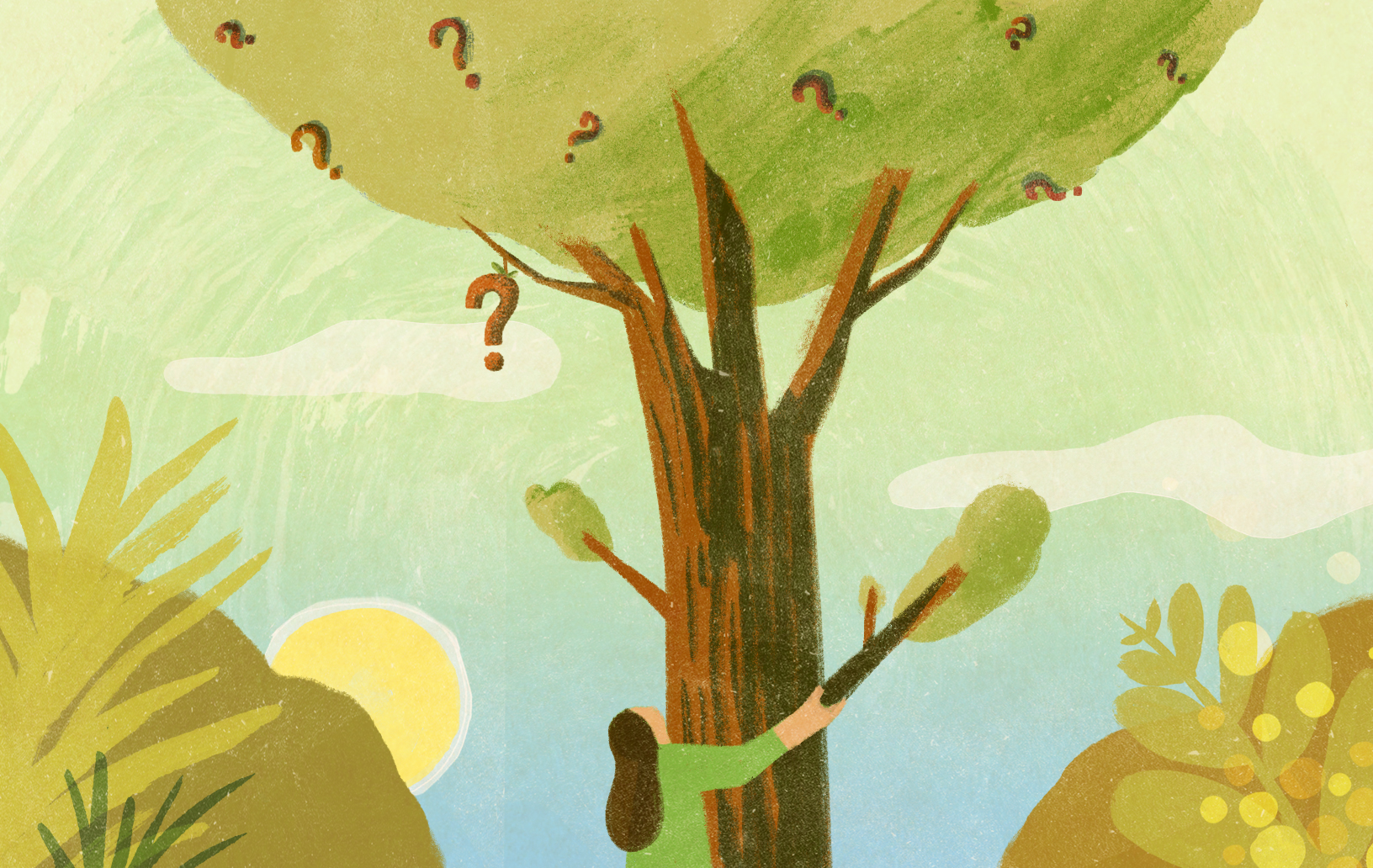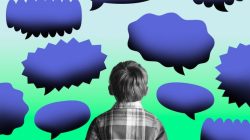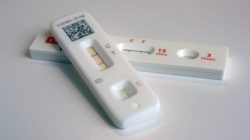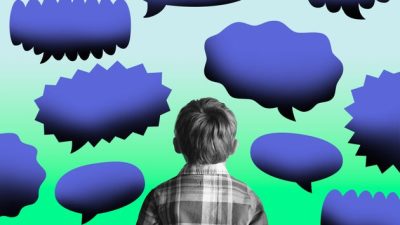What do I do when I don’t know what’s next? How do I move forward when I feel stuck?
These were the queries at the heart of Franz Kappus’s letters. It was 1903 when Kappus, a 19-year-old aspiring poet, began writing to the Austrian poet Rainer Maria Rilke and asking for advice about how to live his life. Like many 19-year olds, he had a lot of questions — about love, work, art, relationships.
Rilke famously wrote back not with answers, but by telling him, “I want to ask you, dear sir, as best I can, to have patience about everything that is still unresolved in your heart; try to love the questions themselves, like locked rooms, like books written in a truly foreign language.”
When I read this passage by Rilke in “Letters to a Young Poet,” the book of their years-long correspondence, I had another question: How do you love the questions of your life, particularly the ones that are painful? I read the book at a time when I was buckling under big questions, especially after leaving a job to pursue a creative project that was failing. The phrase “what am I doing with my life
?
” echoed in my head as I applied for job after job and received a steady stream of rejections.
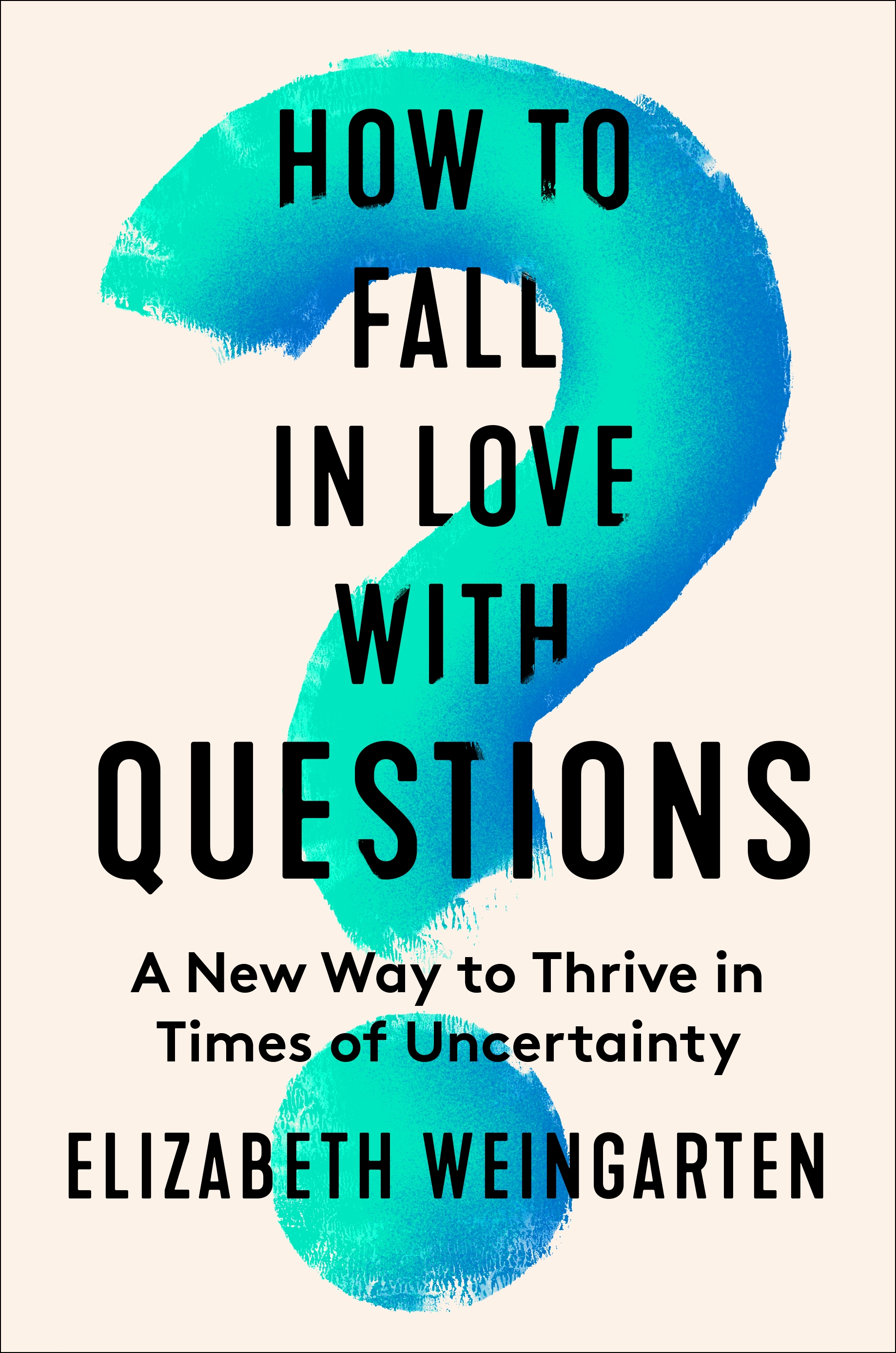
Inspired by Rilke’s words, I embarked on a journey to learn how to love the questions of our lives, particularly in a world in which so many of us have become addicted to fast, easy answers. It became a book about how to thrive during times of uncertainty entitled “How to Fall in Love With Questions.” Though I wrote about the big questions around identity, relationships, career, love and loss, what I learned can apply to business leaders grappling with a turbulent economic climate, the unpredictable impacts of AI, or other sources of uncertainty because of one big insight: Our relationship to the uncertainty in our lives directly reflects the relationship we have with ourselves. In other words, the better we are able to regulate our own emotions, comfort ourselves in difficult moments, and know what we need during those moments — the better we will be at thriving in and leading through uncertainty.
For professionals, a crucial and challenging step is to cultivate a connection to ourselves that isn’t contingent on achievements. Baylor University doctoral student Elizabeth Bounds has devoted much of her research to understanding how to do it. Growing up as an athlete, Bounds became curious about the questions “Who am I, and what am I worth if I can’t achieve and perform?” As she played soccer and basketball, Bounds began to realize her self-worth was too rooted in her success on the field or the court.
“For so many athletes, sport is a very salient source of identity,” she says.
The problem with any kind of achievement or performance-related identity, Bounds says, is that it can subsume you. Being an athlete or business leader is not just part of who you are, but all of it. Also called identity foreclosure, this problem can make it seem as though a failure on the playing field — or in the boardroom — indicates that you are a failure. It turns any mistake into a kind of referendum on your value and dignity.
“What I know now is that it’s more adaptive to root your sense of self-worth in more sturdy, internal domains — for instance, in your own morality,” she says. “Work performance, athletic performance, other people’s opinions — all of these are outside of your control. Those things end up burning you.”
When your self-worth is tied to your work achievements, any uncertainty that could threaten your ability to perform becomes something to be feared, rather than an opportunity to change and grow. Indeed, grappling with extreme uncertainty can be an opportunity to reimagine one’s identity apart from external expectations or achievements. When Barbara Schoen was in her early 30s, she had risen from a blue collar, “barely middle class” upbringing to a high-status role at a Fortune 500 company, often traveling for work.
Though she felt herself being propelled forward, with vague ambitions to move up, up, up, “I never felt like I was doing what I needed to be doing with my life,” she recalls. “I didn’t feel like I was making the mark I needed to be making.” But who had time to think about that when there was so much to do? Schoen once told an airplane seatmate that she “wanted to change the world.” For her, this meant making educational opportunities available for children who lacked access to them, just as she grew up.
Then, the unimaginable happened: Schoen was in a car accident and became paralyzed from the waist down. Her survival plunged her into a sea of questions about what her new life would be. It also forced her to explore the questions that had been percolating before: What did she want to do with her life? Who did she want to be? What would “changing the world” look like for her?
Extreme uncertainty, Schoen learned, demanded that she become more flexible in her identity, stretching into a new one like an unfamiliar yoga pose. Schoen’s big questions — Would she regain her ability to live an independent life? Who was she now that she’d had the accident? Who could she become? — along with her changed circumstances, meant she could no longer cling to a past version of herself who no longer existed. The injury, she says, “was kind of a relief. I had felt trapped in my current position. . . . I felt like the injury gave me an opportunity to do something else.”
And she did. Schoen returned to school to pursue a PhD, later devoting her career to help people with disabilities get access to the resources they need to live empowered lives.
Schoen’s story teaches us a powerful lesson. In the face of uncertainty, many of us cling to what we know because it feels safe. We shrink back in fear and narrow the possibilities for our lives, but what I learned during interviews with scientists, artists, activists, philosophers, executives and others is that a life of loving and living in questions is less about chasing the answers, safety and protection, and more about pursuing integrity, challenge and growth.
How do you begin?
In the book, I share tools to develop a questions practice that can help you find clarity about how to move forward in the face of painful uncertainty. One place to start is considering whether your question is the right one.
The best questions open the field of possibilities for our lives. They are usually not binaries, and they do not inherently question our worth. It’s the difference between a question like “Am I good at my job?” and “How can I learn more about my strengths and opportunities so I can grow?” Great questions also act as an internal GPS, leading you back to what is most important to you and away from patterns of rumination and regret. You might ask yourself, “Is my question leading me back to what’s most important to me, what I really want in my life, or is it pulling me away from it? Is it keeping me trapped in the past, or helping me move forward?“
Remember — it’s okay if you don’t have the answers. Ultimately, the questions may help you more than you might think. Kappus, in his letter back to Rilke, tells him that he now realizes “our greatest treasure is not rational understanding, but what ripens within us, silently and unconsciously, and will one day come to the surface of the soul.”
Elizabeth Weingarten is a freelance writer whose work has been published in The Atlantic, Slate, and Time, among others. She is the former managing editor of Behavioral Scientist.

